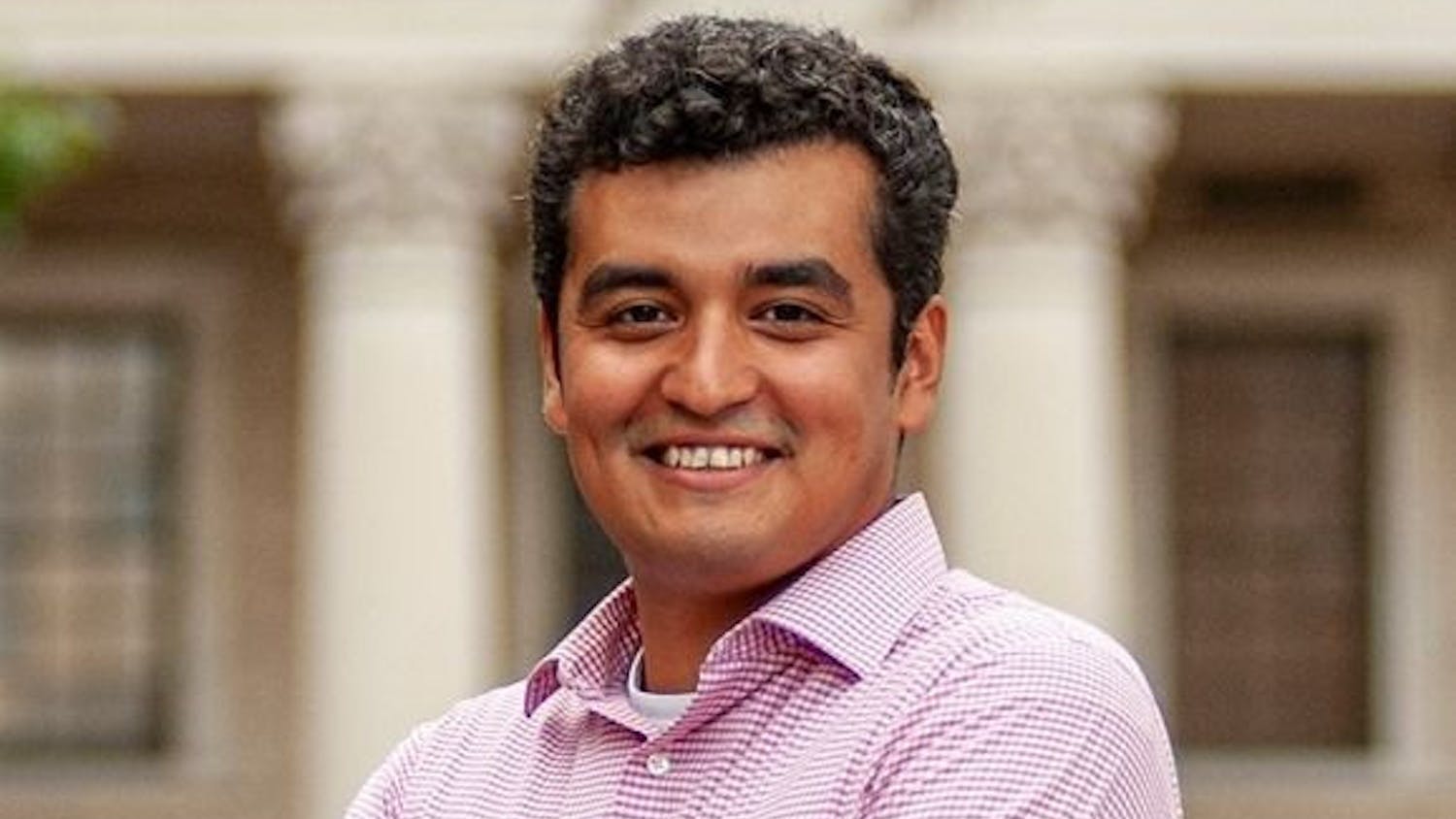Federal funding cuts to vaccine research have impacted scientists nationwide — and some of those cuts hit close to home.
The U.S. Department of Health and Human Services wrote in an Aug. 5 press release it would “wind-down” mRNA development and research after a “comprehensive review of mRNA-related investments initiated during the COVID-19 public health emergency.”
The order targeted the HHS sector that contracts with universities and pharmaceutical companies like Pfizer, ModeX and Moderna. Twenty-two mRNA vaccine developments under the sector were terminated, according to the release.
Most COVID-19 vaccines are made with mRNA. Unlike other vaccines, which use weakened or dead bacteria or viruses, mRNA vaccines work by instructing the body to make a specific protein. The proteins trigger immune responses without exposing the recipient to the actual virus.
While some final-stage contracts will be allowed to see their project through completion, no new mRNA-related research programs will begin, effective Aug. 5, 2025. The cuts affect $500 million worth of mRNA research and development.
Trump-appointed HHS Secretary Robert F. Kennedy Jr. said data suggests mRNA vaccines don’t protect people from upper respiratory infections, like COVID-19 and the flu.
“Let me be absolutely clear: HHS supports safe, effective vaccines for every American who wants them,” Kennedy said in a news release. “That’s why we’re moving beyond the limitations of mRNA and investing in better solutions.”
The news release did not specify which “better solutions” the HHS would be investing in.
A known vaccine skeptic, Kennedy said the COVID-19 vaccine is the “deadliest vaccine ever made” in a Dec. 6, 2021, meeting with Louisiana lawmakers. During the COVID-19 pandemic, he filed a petition to the Food and Drug Administration to cease the distribution of COVID-19 vaccines, although it had already saved about 140,000 lives in the U.S.
Dr. Elias Sayour, a UF pediatric oncologist and RNA researcher, is developing vaccines that reprogram the immune system to fight cancer — including pediatric cancer — and he’s carried out a multitude of mRNA-based research projects.
Sayour’s cancer vaccine would allow the immune system to identify cancer and fight it early on. The “universal vaccine” can treat anyone while they wait for a personalized cancer vaccine.
Sayour submitted a proposal to the National Institutes of Health for a clinical trial for the universal vaccine, The Washington Post reported in September. A panel of experts reviewed it and gave it an excellent score; one reviewer called it “high-impact” and praised its “elevated significance.” The funding did not arrive for months, so Sayour connected with advocates, who sent letters encouraging the NIH to move the money forward.
However, Sayour never received the grant he was promised by the NIH.
Sayour declined to comment on the funding cuts. It’s unclear to what extent his research will be able to continue.
Dr. Rui Yin, a UF associate professor of health outcomes and biomedical informatics, said his mRNA research helped him create an AI model that predicts which viruses might be prevalent in upcoming seasons.
This is critical research that people should be paying attention to, Yin said. Many of his collaborators at UF work under federal grants and will be affected by funding cuts, he added.
“This is not a good choice, because, as we all know, vaccinations are not something new,” Yin said. “We witness the benefits, help and protection from these vaccines. There is still a lot of potential to be explored.”
Yin said in the near future, scientists will be developing medicines for diseases like cancer, but without the funding, not much can be done.
He said when new viruses emerge, Americans will struggle to protect themselves against them, posing a huge threat to public health.
“We will never know what other pathogens or viruses will emerge in the future,” Yin said. “If this happens, if they don’t have sufficient tools or matters to prevent them … then people will just panic. We are just threatened.”
Dr. Jeff Coller, an RNA biology and therapeutics professor and mRNA researcher at Johns Hopkins University, said he and his peers have also been affected by the federal cuts.
The NIH has historically been the main source of biomedical science research funding, he said. After other vaccine and mRNA-based medicine skeptics were appointed under Kennedy, Coller said, NIH scientists were told to disclose the details of their work on mRNA-based vaccines.
Coller said he and the biomedical community saw the order as an early warning sign of more restrictions. Not long after, Kennedy canceled a contract with Moderna to develop a vaccine for the bird flu. When the 22 grants developing mRNA-based vaccines were also canceled, Coller said, the results were devastating.
“The cancellation of those 22 grants really sent a chill through the entire ecosystem,” Coller said. “mRNA-based science, research and medicines is something that the administration and RFK Jr. simply does not support.”
The fear of funding lapses combined with presidential oversight is alarming, Coller said. He’s not sure if these grants will ever be replaced.
Consequently, graduate schools are reducing their admissions, he said. Some Johns Hopkins graduate programs are cutting admissions rates by half, and some will not be admitting any students indefinitely.
“We’re going to have an entire generation of scientists disappear in the United States,” Coller said.
Dr. Kevin Folta, a UF horticultural sciences professor, said the NIH funding cuts are devastating to UF and to mRNA research like Sayour’s.
“We’re finally at the breaking point where critical programs that underlie the best science and the newest technologies are being lost,” Folta said. “I don’t know if we're going to recover from that.”
Folta said funding for UF graduate science programs were insufficient before the Trump administration stepped into power, but now, large cuts in the NIH and National Science Foundation have made it worse.
“I’ve never been so pessimistic about the state of USA science,” Folta said.
Hiring scientists and conducting research is already increasingly expensive because of inflation, Folta said. But the administration’s cutbacks on agencies that fund research, such as NIH, NSF and the CDC, have amplified the issue.
Despite the losses, UF has been able to connect with private donors and organizations for funding, Folta said. However, he said he thinks the university will start to lag behind in the research it’s renowned for.
“We were, for years, the world’s leader in research and innovation. We were the place to go, where students wanted to train from China, from Europe, from everywhere,” Folta said. “That is over now in a lot of ways.”
Federal funding cuts will be generational, and it will take a long time to rebuild what has been lost, he said.
Contact Angelique Rodriguez at arodriguez@alligator.org. Follow her on X @angeliquesrod.

Angelique is a first-year journalism major and the Fall 2025 graduate school reporter. In her free time, she'll probably be reading, writing, hanging out with her friends or looking through the newest fashion runway shows on Vogue.






